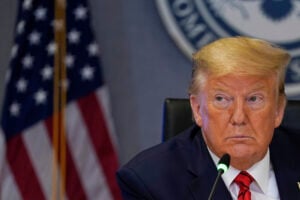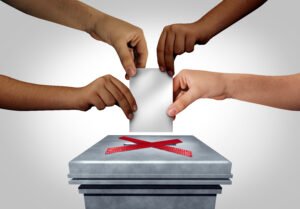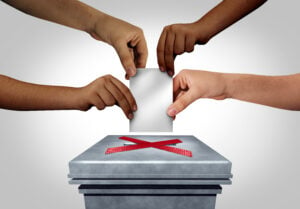Pro Bono Week, recognized at the end of October, is a time to celebrate the incredible difference pro bono can make. With individuals and businesses across the nation facing unprecedented challenges due to the pandemic and economic downturn, this work feels more urgent than ever this year.
Practising Law Institute (PLI) is known for providing CLE and other professional development nationally, but the 80+ year-old organization is also heavily invested in pro bono. Kara O’Brien, Vice President of Programs, and Janet Siegel, Director of Pro Bono Services, spoke about PLI’s mission and offerings.
Can you tell us more about PLI’s commitment to pro bono?
Kara O’Brien: PLI has long been committed to providing attorneys with the training they need to represent individuals in a pro bono capacity. It is really at the heart of our mission as an organization. We have a three-pronged approach to providing access to our programs for attorneys who are interested in serving underrepresented communities. With widely available scholarships, free Pro Bono Memberships for legal aid and nonprofits dedicated to providing pro bono legal services, and significantly discounted pro bono programs, our training is accessible and affordable.
Why is this so important to your organization?
KO: PLI has always supported the legal profession and, more broadly, the rule of law. We believe that increasing access to justice ultimately strengthens the rule of law for everyone and we are proud to play a part in that endeavor.
What does PLI’s Pro Bono department focus on?
Janet Siegel: Our Pro Bono team works to raise awareness of the great need for pro bono representation, especially now during this pandemic, and offers training to support attorneys so that they can better represent pro bono clients. We offer programs on a wide number of substantive topics including immigration, domestic violence, criminal justice, housing, nonprofit organizations, consumer bankruptcy and veterans’ issues.
How are these programs developed, and what does PLI do to ensure that its offerings are fresh and relevant to law firms and practitioners?
JS: We constantly follow legal developments and have a great team that can quickly produce and adapt relevant content for our audiences. We’re also very lucky to have highly experienced faculty from both law firms and legal services organizations who review our programs to ensure their relevance and timeliness.
With that in mind, how have you adjusted your program offerings in response to current events? How have those programs been received?
JS: This year, we offered a series of remote and on-demand programs on the impact of COVID-19 on immigration, nonprofit organizations, housing, and employment, as well as best practices and ethical issues in providing remote legal services, all of which drew very large audiences. In response to the protest movement in the wake of George Floyd’s death earlier this year, we quickly organized our civil rights, diversity and related programs so that they could be accessed easily at pli.edu/accessjustice.
Because this is an election year, our program on Voter Rights (now available on-demand) was of great interest as well. We also have a large ongoing curriculum of immigration programs generally, which continue to attract large numbers of attendees.
What would you advise law firms and lawyers looking to get more involved with pro bono?
JS: If your firm has a Pro Bono Manager, that is always a good place to start. Many firms can match you with pro bono matters that meet your interests or help you with skills you wish to develop. Anyone interested in taking on pro bono representation but concerned that they need additional training should check PLI’s pro bono page at pli.edu/probono. We offer programs for all experience levels, led by highly knowledgeable faculty who are deeply committed to access-to-justice issues. Our programs will also give you information about the many opportunities for pro bono and possible organizations to contact.
In addition to training on substantive law, we offer several skills training and ethics programs. Find something that matters to you and jump in. Lawyers have told us that their most rewarding work comes from their pro bono efforts.
Is there anything else you’d like people to know about pro bono at PLI?
If you’re interested in learning more about pro bono in action, our podcast Pursuing Justice: The Pro Bono Files tells the “real-world stories” of attorneys taking on various types of pro bono representation.
 Practising Law Institute is a nonprofit learning organization dedicated to keeping attorneys and other professionals at the forefront of knowledge and expertise. PLI is chartered by the Regents of the University of the State of New York and was founded in 1933 by Harold P. Seligson. The organization provides the highest quality, accredited, continuing legal and professional education programs in a variety of formats which are delivered by more than 4,000 volunteer faculty including prominent lawyers, judges, investment bankers, accountants, corporate counsel, and U.S. and international government regulators. PLI publishes a comprehensive library of Treatises, Course Handbooks, Answer Books and Journals also available through the PLI PLUS online platform. The essence of PLI’s mission is its commitment to the pro bono community. View PLI’s upcoming live webcasts here.
Practising Law Institute is a nonprofit learning organization dedicated to keeping attorneys and other professionals at the forefront of knowledge and expertise. PLI is chartered by the Regents of the University of the State of New York and was founded in 1933 by Harold P. Seligson. The organization provides the highest quality, accredited, continuing legal and professional education programs in a variety of formats which are delivered by more than 4,000 volunteer faculty including prominent lawyers, judges, investment bankers, accountants, corporate counsel, and U.S. and international government regulators. PLI publishes a comprehensive library of Treatises, Course Handbooks, Answer Books and Journals also available through the PLI PLUS online platform. The essence of PLI’s mission is its commitment to the pro bono community. View PLI’s upcoming live webcasts here.













 Kathryn Rubino is a Senior Editor at Above the Law, and host of
Kathryn Rubino is a Senior Editor at Above the Law, and host of 
 Jordan Rothman is a partner of
Jordan Rothman is a partner of 


 Practising Law Institute is a nonprofit learning organization dedicated to keeping attorneys and other professionals at the forefront of knowledge and expertise. PLI is chartered by the Regents of the University of the State of New York and was founded in 1933 by Harold P. Seligson. The organization provides the highest quality, accredited, continuing legal and professional education programs in a variety of formats which are delivered by more than 4,000 volunteer faculty including prominent lawyers, judges, investment bankers, accountants, corporate counsel, and U.S. and international government regulators. PLI publishes a comprehensive library of Treatises, Course Handbooks, Answer Books and Journals also available through the PLI PLUS online platform. The essence of PLI’s mission is its commitment to the pro bono community. View PLI’s upcoming live webcasts
Practising Law Institute is a nonprofit learning organization dedicated to keeping attorneys and other professionals at the forefront of knowledge and expertise. PLI is chartered by the Regents of the University of the State of New York and was founded in 1933 by Harold P. Seligson. The organization provides the highest quality, accredited, continuing legal and professional education programs in a variety of formats which are delivered by more than 4,000 volunteer faculty including prominent lawyers, judges, investment bankers, accountants, corporate counsel, and U.S. and international government regulators. PLI publishes a comprehensive library of Treatises, Course Handbooks, Answer Books and Journals also available through the PLI PLUS online platform. The essence of PLI’s mission is its commitment to the pro bono community. View PLI’s upcoming live webcasts